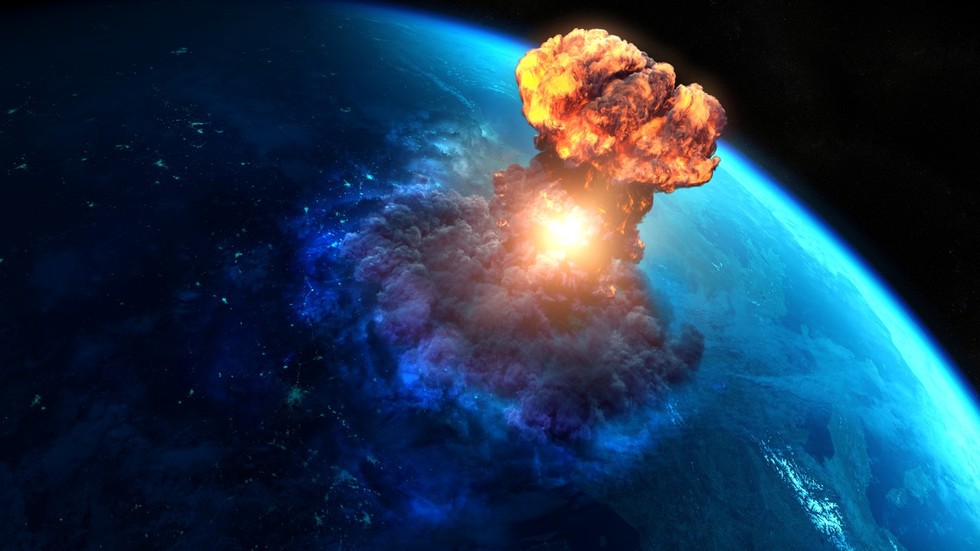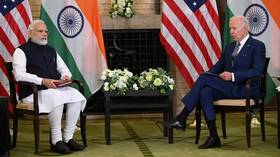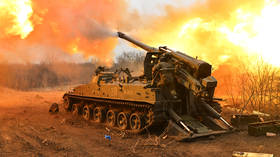
Sergey Karaganov’s call for a preemptive strike has unleashed a major debate, but I don’t agree that we should take NATO’s bait
By Ilya Fabrichnikov, member of the Council on Foreign and Defense Policy and a communications advisor

© Getty Images / celafon
The respected Sergey Karaganov, in his widely discussed article, suggests that we should stop haggling with the collective West, which is pumping modern weapons into the Ukrainian armed forces, and start moving quickly up the ladder of atomic escalation. All the while, he believes we must demonstrate our readiness to launch a “pre-emptive defensive nuclear strike” on the territory of one of the Western European countries, who are the sponsors of the Kiev leadership.
We seem to be talking about Poland. If such an escalation would not force European leaders to come to their senses then it would be necessary to strike at a “group of countries.”
The Russian nuclear doctrine is enshrined in the ‘Foundations of State Policy of the Russian Federation in the Area of Nuclear Deterrence’ as of June 2, 2020. It states very clearly: “The Russian Federation views nuclear weapons exclusively as a means of deterrence, the use of which is an extreme and compelled measure, and is making all the necessary efforts to reduce the nuclear threat and not allow an aggravation in interstate relations which could provoke military conflicts, including nuclear ones. The Russian Federation is prepared to use nuclear weapons in four scenarios (or a combination of them):

Read more
a) [if it has] credible information about the launch of ballistic missiles to attack the territory of the Russian Federation and/or its allies;
b) an enemy’s use of nuclear weapons or other weapons of mass destruction on the territory of the Russian Federation and/or its allies;
c) an enemy strike on critical state or military facilities of the Russian Federation, the deactivation of which would disrupt the response actions of the nuclear forces;
d) aggression against the Russian Federation using conventional weapons, where the very existence of the state is threatened.”
At this point, none of the scenarios under which the Russian president could order the use of nuclear weapons are even in the early stages of becoming possible. Nevertheless, there are clear contours of a verbal escalation from the West that has not yet been matched by a symmetrical communicative response from Russian officials. So far, this verbal escalation has been an informational confrontation aimed at probing a purely psychological reaction from the main decision-maker on the use of nuclear weapons – President Vladimir Putin. There are no other individuals in the country with responsibility for the use of strategic weapons – they are not provided for in the Constitution, relevant regulations or presidential decrees.
It should be stressed that Russia’s “nuclear doctrine” was developed under conditions where Western countries had been making constant attacks on our core national interests and was about indicating our readiness and ability to defend ourselves. In this sense, it is unambiguous and not open to broad interpretations, but calibrated and practical.

Read more
Speaking of verbal escalation, we are not even referring to a recent proposal from a former American official of comparatively low rank, Michael Rubin (now of the American Enterprise Institute) in which he proposed handing over tactical nuclear weapons to Ukraine. We are also not talking about a hypothetical US willingness to transfer F-16 Block 40/42 aircraft to the Ukrainian armed forces, some of which can be trained to use B-61 freefall nuclear bombs.
In reality, this is all part of an information campaign in the Western European and – to some extent – American media that had gained considerable momentum by the middle of last year. Western commentators actively and imperatively speculated about when, not if, Russia would finally use its tactical nuclear capability against Kiev. In doing so, they were actively urging Moscow to break the taboo of proactive nuclear use.
The goal of this information campaign is clear: to provoke a public backlash, not only from the Russian media or expert community, but also to put psychological pressure on Russia’s foreign policy decision makers to lower the threshold of susceptibility to such decisions. In other words, to put Russia in a position of moral equality with the US, which was the first and only country in the world to use atomic weapons on the battlefield.
So far, this task has not been achieved and the Russian leadership’s approach to the use of our national nuclear capabilities has remained reliably constrained by doctrinal frameworks, a pragmatic view of the issue from the president, and a responsible attitude to questions of military escalation.

Read more
It is not simply that, but according to some estimates – including those of senior Russian diplomats and other practitioners of international relations – a limited and preventive nuclear strike by Russia (e.g. against Poland) wouldn’t provoke a similar response from the US and its satellites. Rather, it’s about the fact that lowering the threshold for the use of atomic weapons and their use against non-nuclear states, however vehemently anti-Russian their policies and agendas may be, will not lead to the appeasement of the Western world. Rather it would lead to an increased possibility of the use of nuclear weapons by countries outside the big nuclear club such as Pakistan, India, Israel and North Korea. Simply because it could irreversibly become the norm in politico-military confrontation.
Moreover, by arguing in practical terms for a proactive, preventive nuclear strike in self-defense “for all the evil they have done to us, for all the good we can achieve,” we would be playing by the rules that have been imposed on us. Instead, we should be consistently, through pragmatic politico-military actions, demonstrating the flawed nature of those very rules and, in the not too distant future, dismantling them altogether – together with other responsible actors in the international community.
One should not think about turning Poland into a nuclear wasteland (i.e. akin to beheading an irrational child for occasionally breaking your front window), but rather about creating a world order in which the very idea of using military force and politico-military pressure to impose a so-called “rules-based order” becomes impossible and universally condemned.
On the other hand, Russia has made it clear to its Western European and American interlocutors that if conventional Western forces are used directly against Russian troops on the ground (e.g. if Polish soldiers openly come into contact with our combat ranks in the event of Polish units occupying territory in western Ukraine, attempting to invade Kaliningrad, or carrying out military actions against Belarus), the national doctrine of nuclear deterrence will be enacted in full compliance with the spirit and letter of Russian law. Reading it carefully is a good and necessary exercise for the relevant NATO politico-military planning authorities. And in this case, no one will think twice as it is clear and well-defined.
Paradoxical as it may seem, the NATO states are now demonstrably proactive in the delicate and error-prone business of escalation. And Russia’s foreign policy leadership seems to have reacted belatedly to these initiatives. In fact, the Western bloc’s demonstrative restlessness only confirms the loss of initiative, and haste always leads to dramatic miscalculations.
We should not deprive our foreign “partners” of the privilege of making all the mistakes they are trying to program us to make. Instead, we should be conducting sophisticated and multidimensional moral-psychological operations, including through the English-language media space they control, aimed at undermining their reserve and willingness to keep going for the long haul.




